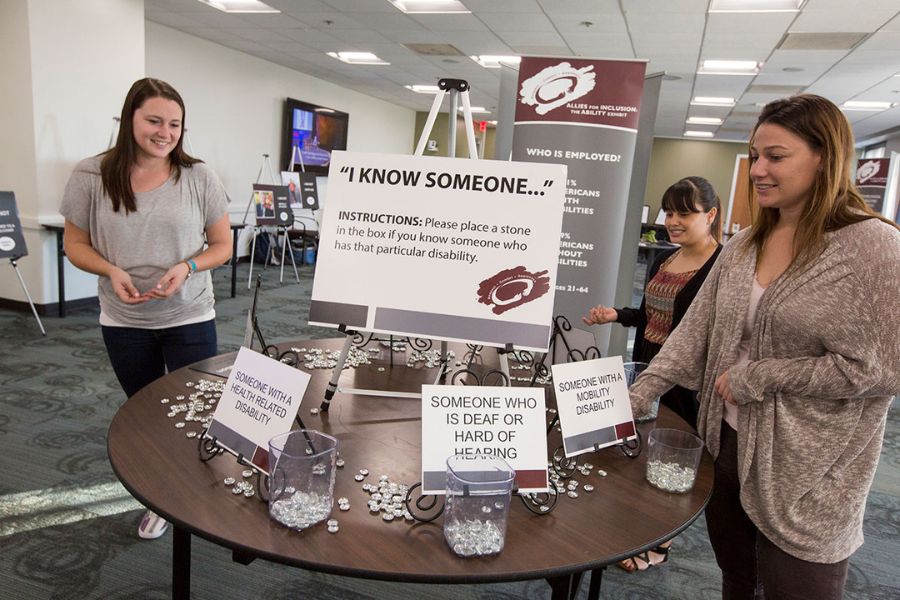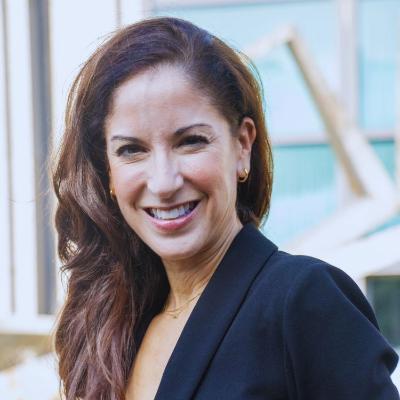
Terese C. “Tisa” Aceves ’99, Ph.D. has spent more than two decades advocating for families who have children with disabilities, particularly in marginalized communities. “These families are too often not informed about how to navigate obstacles so they can support their child’s progress,” says Aceves, a professor in the LMU School of Education’s school psychology program.
Yet, for all of her know-how as an instructor and researcher, Aceves is quick to acknowledge an area where she doesn’t have experience. “I’m not the parent of a child with a disability,” she says. ”And in many ways, those who live that experience have expertise we just don’t have as academics.”

To ensure that her school psychology candidates hear the unique perspectives of people who know firsthand what it’s like to support the educational needs of a child with a disability, Aceves has long incorporated parents and other family members into her classes through panel discussions and course assignments. But several years ago, she decided to go a step further — bringing in family as co-faculty, starting with a course that school psychology candidates take in the program’s first year, called “Student Diversity and Exceptionality.”
Aceves believes that by co-teaching with caregivers who’ve acquired on-the-ground skills through advocacy for their own children, she can better prepare future school psychologists to push for equity and systemic changes that support students with disabilities. “Once I began inviting parents to teach alongside me, I could sense a major shift in how our candidates view their role and the importance of their partnership with families,” she says.
For both the foundations course and her summer course on collaborating with families, Aceves invites a parent of a child with a disability to serve as faculty co-instructor. Aceves also meets weekly with her co-instructor to plan ahead for each class—often incorporating that parent’s own experiences into the lesson.
In choosing her co-instructors, Aceves intentionally reaches out to parents from diverse racial, ethnic, economic, and educational backgrounds. One such parent, who had a high school diploma, was better informed than most highly trained teachers about special education services and supports. “This bilingual mother from a humble background was well-versed in all of the education codes and jargon,” Aceves explains. “That’s what I want my students to understand—that expertise comes in many different forms.”
Too often, Aceves adds, parents from marginalized communities face challenges in navigating the special education system that others do not. One mother recounted a 2020 meeting in which she advocated for her son’s school to continue his speech and language services. The meeting had taken place against the backdrop of rising tensions following the murder of George Floyd at the hands of police, and the woman expressed her fear that without these services, her son, who is Black, would not be able to clearly articulate his needs to a police officer if asked to do so.
“The speech and language therapist told this parent that wasn’t her job,” Aceves says. “And in a room of professionals — teacher, administrator, school psychologist — no one spoke up on this parent or student’s behalf. bThat lack of support really stuck with my school psychology students.”
Because they're “on the ground” with their own children, family members are also more likely than Aceves or her peers to understand the everyday realities of other caregivers in their communities. “It’s one thing for our candidates to learn from me about the role of a school psychologist, or best practices within schools,” Aceves says. “But family faculty members offer real-world scenarios and perspectives that candidates learn from and incorporate into their practices.”
Aceves acknowledges that all schools are particularly stressed when it comes to offering special education services. “We know they face challenges with lack of personnel, lack of resources, frequent turnover,” she says. “The purpose of having family as faculty members is to open up a discussion about how to avoid or address the biggest obstacles and to attain success despite them. We don’t want to present only best-case scenarios, because that would give our candidates the false sense that there is only one way of doing things. Tapping into the expertise of these caregivers helps our candidates become more solutions-focused.”
Nationally, Aceves says, the family-as-faculty methodology has recently been adopted and studied in some teacher-education programs in special education, but not in school psychology programs. She has begun collecting data and is preparing to publish formally about her experiences and their impact on candidate preparation.
The reaction from her school psychology candidates has been universally positive. “They love hearing from parents, whom they recognize as experts,” Aceves says. “I’ve seen them start to address these family faculty as ‘Doctor.’ I had one student ask me when my co-faculty member got her Ph.D. I said, her Ph.D. is in being a parent.”